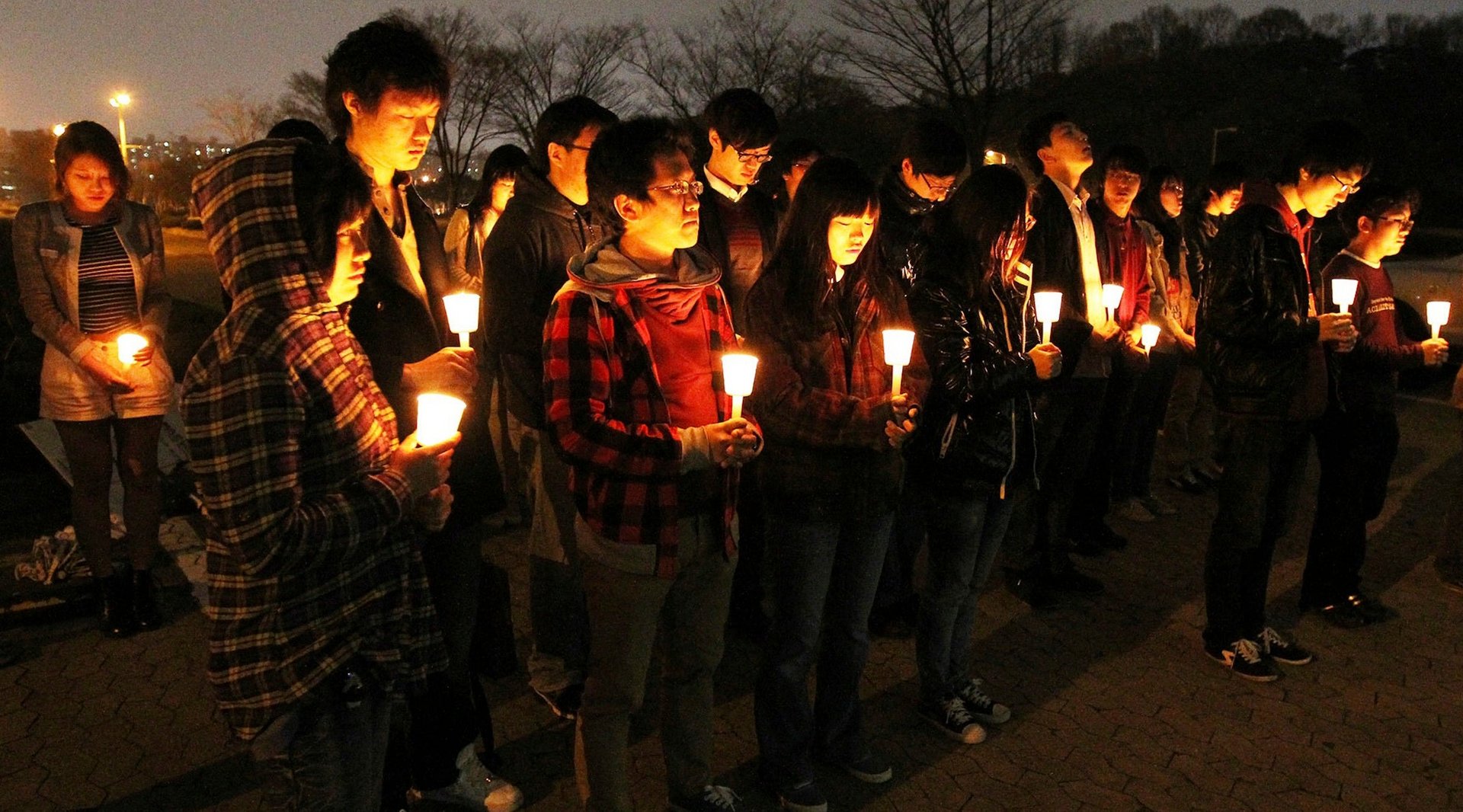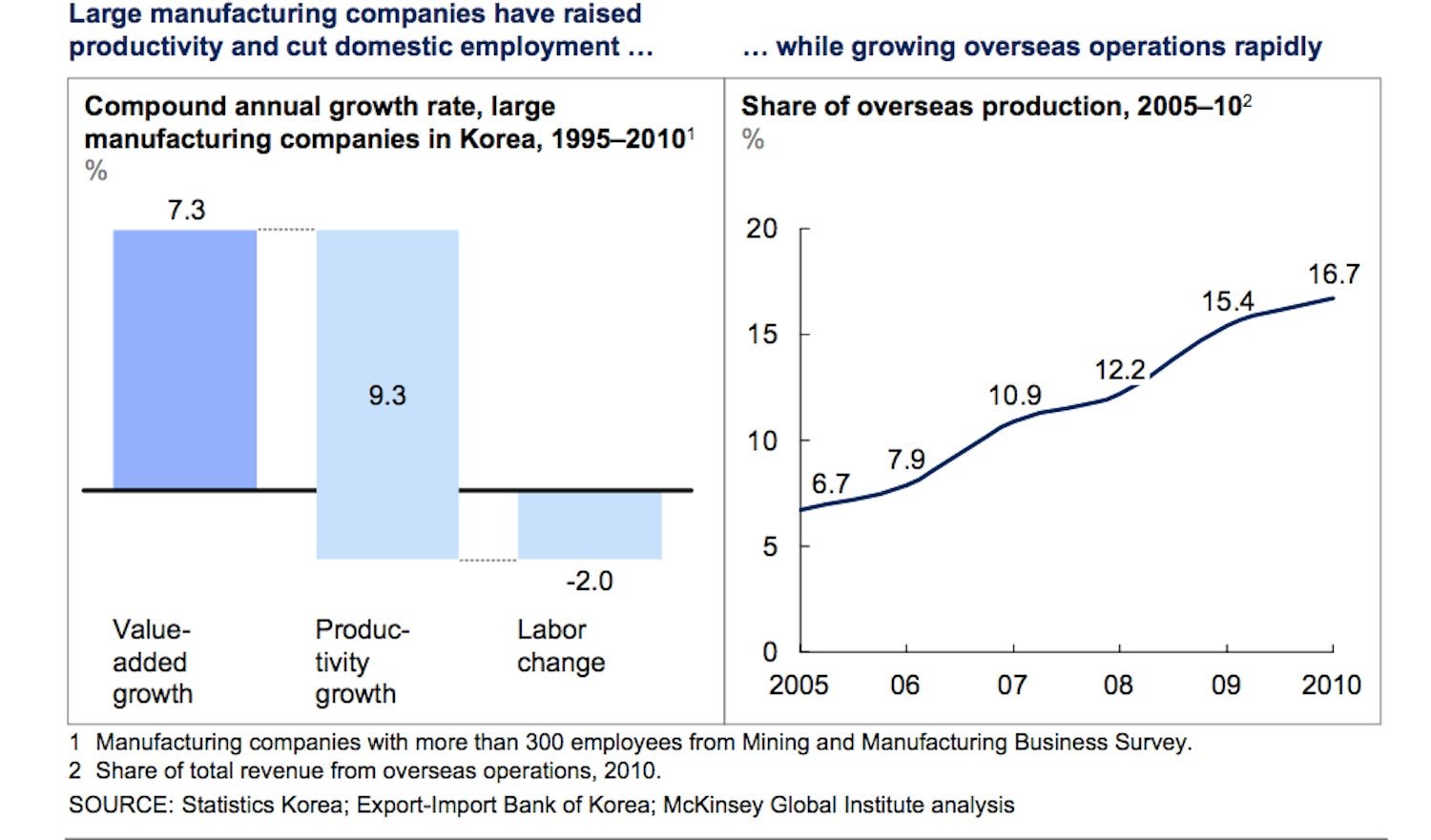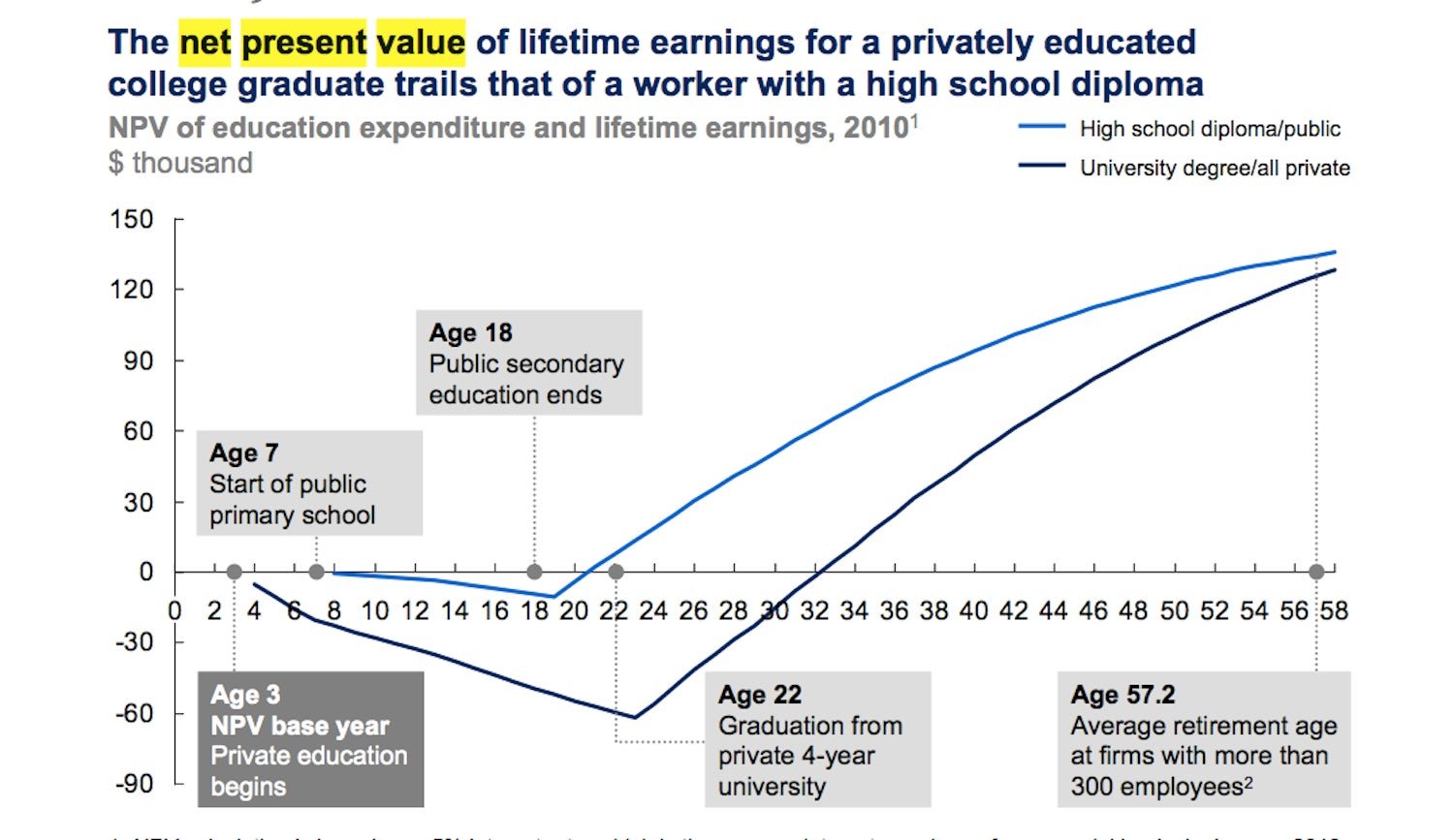Why South Korea is under stress and college graduates there earn less than if they didn’t have a degree
In his latest video, South Korean rapper PSY makes life in the country seem glamorous and carefree.


In his latest video, South Korean rapper PSY makes life in the country seem glamorous and carefree.
That may be true for residents of Gangnam (PSY again here), an upscale district of the capital Seoul. But for most of the nation it could not be further from the truth. According to a new study (pdf) by consultants McKinsey, South Koreans are deeply stressed. And nowhere more so than in the middle class, where over half of families spend more than they earn. Expensive home loans are a culprit. As is private education, as parents race to secure opportunities for their children in a shrinking labor market.
The country has the highest suicide rate in the OECD and the fourth-lowest fertility rate.
“These are symptoms of a society in stress,” McKinsey says.
The problem with depression and suicide is said to derive from parents’ obsession with money and status, which harms the mental health of young people who do not score prestigious jobs. Declining fertility (paywall) happens because of the high costs of living and of educating kids. Internet addiction is a common escape from these woes, but brings its own problems, such as malnutrition—gamers often forget to eat—and social isolation.
Here is a summary of what McKinsey believes has gone wrong in South Korea:
Less job creation
As South Korea’s largest companies—think Samsung Electronics—have succeeded globally, they have looked abroad for cheaper labor and hired fewer people at home. These charts show how well big firms are doing, but how they are increasingly moving their operations overseas.

Hugely expensive mortgages
Home prices in South Korea are 7.7 times the median income. The nation’s highly conservative banks require a 50% down payment on home loans, which often have payment terms of 10 years or less. But South Korea also has a low household savings rate of around 4% (2011 figure). So the country’s citizens often take out high interest home loans to fund their deposits. A South Korean family that can only manage a 10% down payment would wind up paying 8.5% total interest on their borrowings, McKinsey says. A US borrower with a 90% loan-to-value mortgage would pay 3.5%. South Korea’s high home loan costs are due to how the nation’s banks are run. They fund themselves mainly with customers’ deposits, rather than long-term borrowings from the corporate bond market.
The education “arms race” which means college graduates earn less than people with high-school diplomas
McKinsey finds that a typical South Korean middle class family shells out for private kindergarten, elementary school and secondary school, as well as home tutoring. Education fees per child regularly hit $100,000, even before the costs of extra home tuition. South Korea’s middle class parents feel pouring money into schooling will give their kids advantages in life they may otherwise miss out on. But because so many families take this expensive educational route, it does not really give anyone a competitive edge.
(This is not unique to South Korea. Taiwan has similar issues with high education participation and spending resulting in relatively low employment prospects.)
South Korea places a massive 71% of secondary school graduates in college. But their employment rate is low, at just 60%. Unemployed college graduates often give up looking for work instead of starting their careers in a blue collar role. Or they take time out of school to study to get into graduate education or obtain professional licenses. There is also hidden unemployment among graduates, McKinsey says, because of the high rate at which skilled women drop out of the workforce to have children. The consultancy says the country’s employers make “little effort” to provide for long maternity leave or flexible work arrangements. Perhaps due to their sustained periods of unemployment, then, college graduates in South Korea earn less than high school graduates over their lifetimes.
